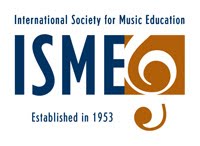


Highly Effective Music Teachers
Translating our passion for music education into effective advocacy
requires particular approaches. MARY-JANE WHITEHEAD found
a management classic surprisingly relevant.
Everyone loves music, so it seems. It comes in all flavours, shapes and sizes and you can have it ‘24/7’, courtesy of modern technology. Background music is so much a part of modern life that most people now feel bereft without it. If music is all around us all the time, apparently ‘enjoyed’ and ‘appreciated’ without any effort beyond the flick of a switch, then of course music education appears redundant and of low priority in the educational scheme of things.
Like many, in my teaching career I have been subjected to the usual put-downs about the value of what I do. I’ve been told that music is a ‘frill’ subject; that teaching music is a ‘soft option’—all we do is sing songs and play games (no skills, academic rigour or sequential learning involved). This flies in the face of the facts: that the kids like coming to music, enjoy their time with us in the music room, perform like champions when required . . . and that when their parents make their choices about where their children go to school, the quality of the school music program is often very high on their list of queries.
So how can we each translate what we know about music education into the nitty-gritty business of being an effective advocate for music in our own work situation, in our own sphere of influence?
This thought sent me back to Stephen Covey’s 1989 book, The Seven Habits of Highly Effective People. If you look at effective school music programs and inspiring music teachers, these seven habits are apparent—in the way the teachers act, and the ripple effects of their attitudes and actions. This is advocacy in action. Let me translate these seven habits into a school music context.
Covey’s first three habits focus on ourselves—knowing our goals and purpose, what we believe is important, and how to stand solid as an independent person.
Be proactive So, nobody at your school seems to understand or value what you are trying to do? You are in control of how you respond. You can be negative or positive—reactive or proactive—it’s your choice. Successful teachers take what they find and work to transform it.
Begin with the end in mind Be clear about your values and the goals of your music-teaching program. Advocacy articles are for you to read and ponder! So too are the pedagogic ideas in this and other magazines and journals and the musical and professional development activities run in the wider community.
Put first things first Keep reviewing your priorities. Effective music teachers manage what they do so that they are not too busy to do the important things, big or small, whatever they are.
While working on ourselves, the next 3 goals get to the nub of advocacy in action—how we relate to and work with others.
Think win/win: Successful music teachers respect what others are trying to do and treat them as valued colleagues. Successful music teachers are prepared to work cooperatively and align what they are doing with school events and priorities or other teachers’ classroom themes, while still working to maintain the integrity of their own learning program.
Seek first to understand, then to be understood Our best teachers take the time to understand the other person’s point of view and respect what they are trying to do.
Synergise: Once teachers work together, the power of many is more than the power of one! Seek out like-minded people, at school, in the community or through a professional association. This makes us both individually stronger, and a more powerful voice as a group.
The final habit is the glue that binds it all together.
Sharpen the saw Take the time you need to renew yourself physically, socially and emotionally, spiritually and mentally!
Successful teachers keep perspective, balance and variety in their lives. There is more to life than work, important though that may be. To burn out is a personal tragedy for you and certainly doesn’t help your school or students either!
Reference
Stephen R Covey, The Seven Habits of Highly Effective People, Simon & Schuster, New York, 1989; also numerous later editions, imprints and spin-offs.
An Advocacy resource from Australia:
The following web site has useful information for those seeking music education advocacy strategies and resources:
The Music Council of Australia "Policy and Advocacy" http://www.mca.org.au/index.php?id=41



